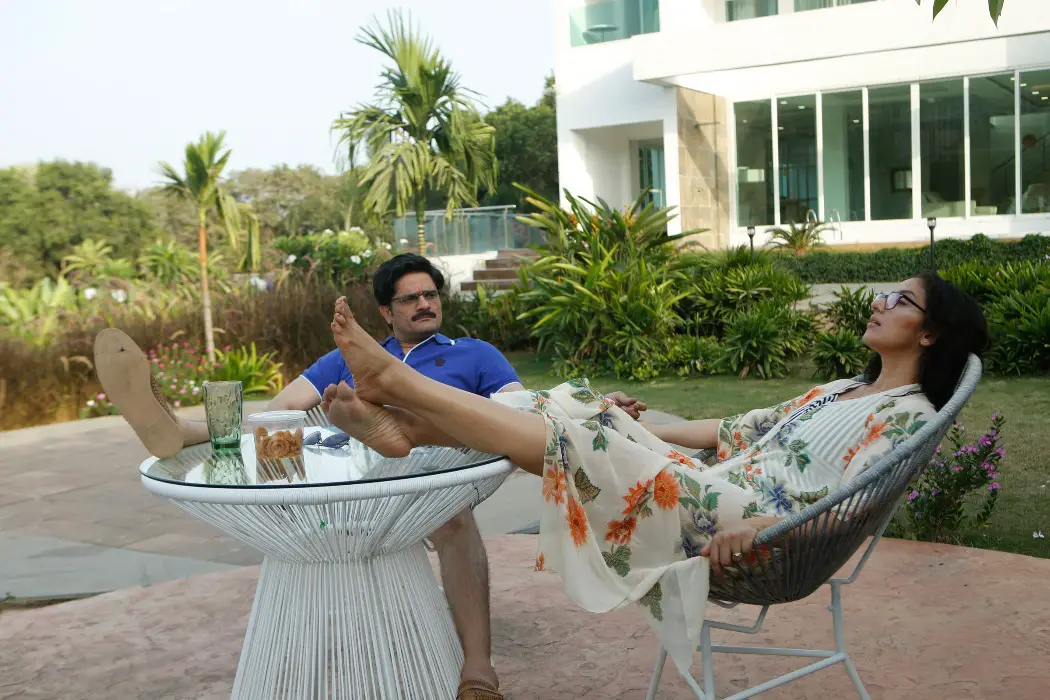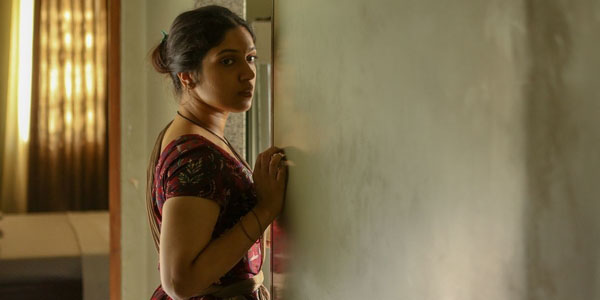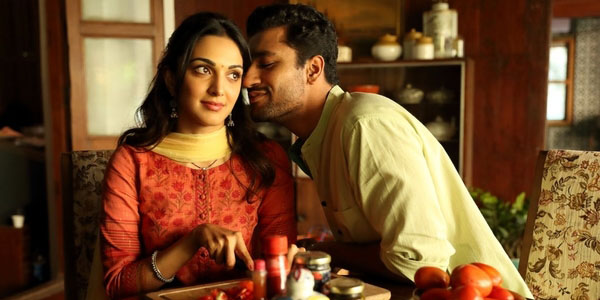LUST STORIES: An Exploration Of Feminism, Sex & Gender Roles In India

Adriana is Georgia born, North Carolina raised, and now California…
Back in 2013, four of India’s most prolific directors, Zoya Akhtar, Dikabar Banerjee, Karan Johar and Anurag Kashyap, collaborated to create The Bombay Talkies, a film anthology celebrating over 100 years of Hindi cinema. It was inspired by films such as New York Stories and Paris Je T’aime. Almost 5 years after The Bombay Talkies, the four directors reunited once again for Lust Stories, a well needed exploration of feminism, sex, and gender roles in modern India.
A collection of four short films, each director explores the concept lust and what it means to them. One of the first Hindi films exclusive to the Netflix streaming service, Lust Stories gives international audiences a sampling of the best of Indian cinema.
Four unique stories from four unique directors
Lust Stories is an anthology composed of four short films from four of India’s most successful directors. Each director provides their own take on the subject of lust, but the film is still cohesive and enjoyable. A triumph for feminism in Indian culture, each of the female protagonists is complex, bold, and intriguing enough to make us want to see more of their lives than their short time slots allow.
Anurag Kashyap‘s film depicts a married college professor named Kalindi (Radhika Apte) who becomes infatuated with her student. Encouraged by her distant husband to live life on her own terms, Kalindi seeks comfort in Tejas (Akash Thosar) after she has a one-night stand with him. Despite her initial disinterest, Kalindi becomes obsessed with him and becomes insanely jealous of his relationship with a fellow student.
The irony of the situation is that at the beginning of the film, Kalindi gives a monologue about how men become emotional after sex. The film plays like a quirky romantic comedy, then transitions into thriller territory, and concludes with a comedic tone. After Kalindi’s obsessive behavior, Tejas finally succumbs and admits he wants to be with her. After the admission, Kalindi scoffs and declares she is married.

Zoya Akhtar chooses to focus on a maid’s sexual relationship with the apartment’s tenant. After their morning rendezvous, Sudha (Bhumi Pednekar) prepares the man’s home for a meeting with his arranged wife-to-be. Immediately after sex, Sudha and the bachelor act as if they don’t know each other, and Sudha’s role is reduced to merely preparing his home for guests. While we are uncertain if there is a real relationship there, Sudha looks onward longingly as the bachelor agrees to marriage. The tone in Akhtar‘s film is sublime, with a focus on Sudha’s errands in the house. She only speaks twice in the film, so we’re left to absorb her emotions.
In Dikabar Banerjee‘s segment, he focuses on Reena (Manisha Koirala)- who is bored in her marriage and admits to an affair with her husband’s oldest and closest friend. Sudhir (Jaideep Ahlawa) struggles with his love for Reena, and also his friendship with Salman (Sanjay Kapoor). After 11 years of marriage, Reena decides she’s done with Salman and makes no effort to hide her feelings of disdain towards him. Salman is a shady businessman- his life consumed by money and power. It is apparent that Salman is emotionally abusive towards Reena and views her as one of his many possessions. However, in the film Reena holds the cards as she tells the truth.

The last of the anthology, and perhaps the most entertaining is Karan Johar‘s view into a recently married couple with problems in the bedroom. Megha (Kiari Advani), a freespirited young woman, is pressured into an arranged marriage despite her reservations. Immediately after marriage, she has to deal with her new husband’s lack of bedroom experience. Megha’s mother-in-law assures her that her suffering is only temporary – until she becomes pregnant.
Unsatisfied, Megha seeks to find pleasure elsewhere. One of Megha’s fellow coworkers introduces Megha to the vibrator. She decides to use it to fulfill the pleasures that her husband failed to provide. Unfortunately she is discovered, and her mother-in-law deems her as unworthy and campaigns for a divorce. Convinced she did nothing wrong, Megha decides to start over with her husband.
Women’s struggles are universal and female sexuality is still taboo
No matter what part of the world you are from, Lust Stories has something relatable for every woman. In Indian culture, female sexuality is something that is still a taboo topic on film. Indian culture is quite contradictory in its attitudes about sex. While it is a culture where the first texts were written about sexual intercourse, it remains a society where arranged marriage is still normal, premarital sex is seen as forbidden, and even marital sex is seen as a ritual and not necessarily an act of pleasure. Lust Stories goes where many other Indian films fail to go when it comes to talking about sexual relationships.

Following the recent release of the controversial film Veere Di Wedding, there was a polarized reception from audiences on both sides of the feminism debate. In Veere Di Wedding, four wealthy women on the search for love are foul-mouthed, smoke, drink, and talk openly about sex. There is even a masturbation scene – which has caused quite the stirring across the internet. According to some critics, the feminism bar was set really low in Veere Di Wedding due to its poor plot and mundane stereotypes (It also had a male director, which probably didn’t help). However, it did expose the glaring discomfort that Indian culture has with a female who is open with her sexuality.
Lust Stories explores female sexuality in a more tasteful, yet realistic way. It pulls no punches and tackles the issues of arranged marriage, women’s domestic roles in India, classism and a power dynamics in sexual relationships, and sex in marriage (and outside of it). These are issues that exist in India and other cultures around the world, yet it’s something that is difficult to portray due to shame and conservatism. Hopefully Lust Stories will convince other Indian filmmakers to create more (quality) feminist content and bring in a group of new female directors and writers.
Lust Stories: An honest view of gender roles from another corner of the world
While fairy tale romances are something that are paraded in hundreds of Bollywood films, Lust Stories gives us some insight into the modern Indian woman and the role she plays. Romance really isn’t the focus in this film at all. It’s the complex relationship with sex that Indian women have. It’s a refreshingly honest view of the ways that women think and behave that are not always shown so freely on screen.
Lust Stories creates a dialogue between men and women, parents and daughters, and friends as well. Despite it being an anthology, Lust Stories is charming and thought-provoking. It’s definitely a step forward for Indian cinema, and I hope we see more films like it in the coming years.
How did you feel about each short film in Lust Stories? How do you think Indian culture compares to other cultures around the world?
Lust Stories in now available to stream on Netflix in the United States, Singapore, and Sweden. For more release information, you can check the IMDB page.
Does content like this matter to you?
Become a Member and support film journalism. Unlock access to all of Film Inquiry`s great articles. Join a community of like-minded readers who are passionate about cinema - get access to our private members Network, give back to independent filmmakers, and more.
Adriana is Georgia born, North Carolina raised, and now California surviving. A fashion school defector, Adriana now spends her a lot of her time writing about film and life. Some of her other passions include solo travel, food, and bargain shopping. Her work has been seen on sites such as Film Inquiry, Film School Rejects, Reel Honey, and CC2K. You can see her more of her work on thecinemasoloist.com.













